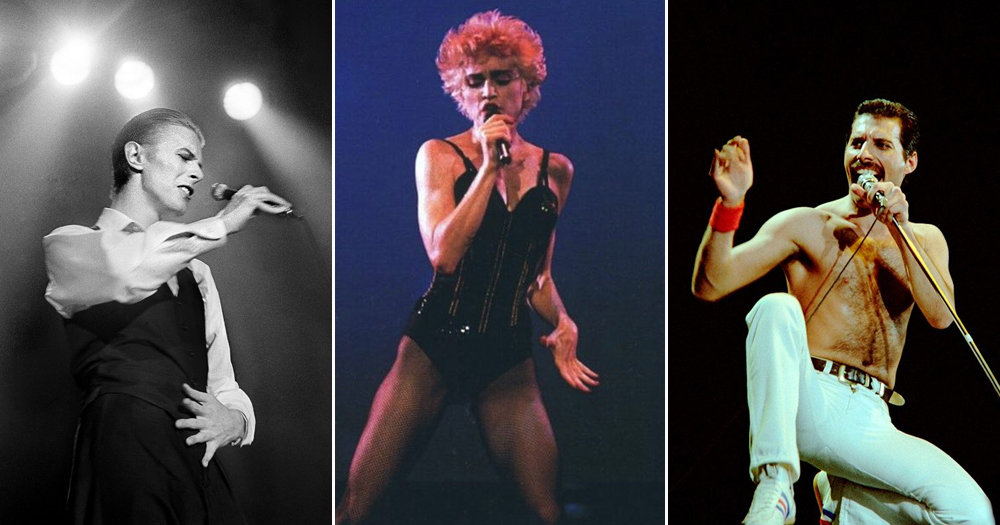GCN contributor Eoghan Lyng dives deep into the newly published book 1984: The Year Pop Went Queer, where author and pop fanatic Ian Wade traces the history of music for that year.
Revolution arrives in clumps, bustles of motions coming together to create something new. 1962 heralded the arrival of British rock, by virtue of a harmonica-led Beatle ditty; 1977 saw the rise of punk, a newer, trendier brand of music that applauded the working classes; and now author Ian Wade has made a convincing argument for 1984: the year of the gay.
Wade pulls no punches. Titled 1984:The Year Pop Went Queer, his book presents Wade’s findings across a spectrum of weird and wonderful creations. Everyone from Michael to Mercury brought camp flair to their work, while the comparatively butch Mancunian outfit The Smiths enjoyed their standing among the LGBTQ+ contingent.
“A lot of my mates were gay guys who liked rock music,” guitarist Johnny Marr once said. “I liked the idea of us being a band that were saying things for the gay community.”
Listening to ‘This Charming Man’, it’s easy to discern a homoerotic element to the work, and vocalist Morrissey has continued down this vein in his solo career with ditties ‘The More You Ignore Me, The Closer I Get’ and ‘I’m Throwing My Arms Around Paris’ – there’s no need to comment on ‘The National Front Disco’!
Divine, an American-born drag queen, made a splash that year with ‘You Think You’re A Man’, netting an impressive position on the Irish Singles Chart; nearly a decade before homosexuality was decriminalised in the Republic.
Queen got in on the act with ‘I Want To Break Free’, a promotional art video in which the four members dragged it up as their favourite soap opera characters, bassist and songwriter John Deacon, looked fetching as the disapproving Granny.
Freddie Mercury became something of a gay pin-up, although he was reluctant to acquiesce to demands and comment on his personal life. Nevertheless, Mercury’s bouncy ‘Love Kills’ became something of a club favourite, proving that pop could be powerful if it was geared at the right audience. As author Ian Wade notes: “..prophetically a song that would be very of its time due to the encroaching grip of AIDS.”
What could have been a dry excursion into historiography actually turns out to be a punchy and pleasant read, keenly tying an important year through an impressive cocktail of wit and forensic study. In one of the funnier chapters, Wade outlines the rise of leather among heavy metal fans; camouflaging Rob Halford’s gay characteristics as one of the trappings the genre permitted.
The stomping grooves heard on ‘Eat Me Alive’ could barely conceal the frenzied carnal energy. “It makes ‘Relax’ sound like ‘The Frog Chorus’,” Wade notes. I’m not sure of that myself: there are no fewer than eleven “bums” in the opening seconds of ‘We All Stand Together’!
Madonna was similarly popular among gay listeners, leading Boy George to christen her as “a gay man in a woman’s body”. And then there was David Bowie, a bi-pin up who had transitioned from 1970s esoteric writer to mid-1980s stadium champion with barely a hiccup.
1984 in Wade’s world is very different from the one in George Orwell’s view—it’s gayer, too.
© 2024 GCN (Gay Community News). All rights reserved.
Support GCN
GCN is a free, vital resource for Ireland’s LGBTQ+ community since 1988.
GCN is a trading name of National LGBT Federation CLG, a registered charity - Charity Number: 20034580.
GCN relies on the generous support of the community and allies to sustain the crucial work that we do. Producing GCN is costly, and, in an industry which has been hugely impacted by rising costs, we need your support to help sustain and grow this vital resource.
Supporting GCN for as little as €1.99 per month will help us continue our work as Ireland’s free, independent LGBTQ+ media.
